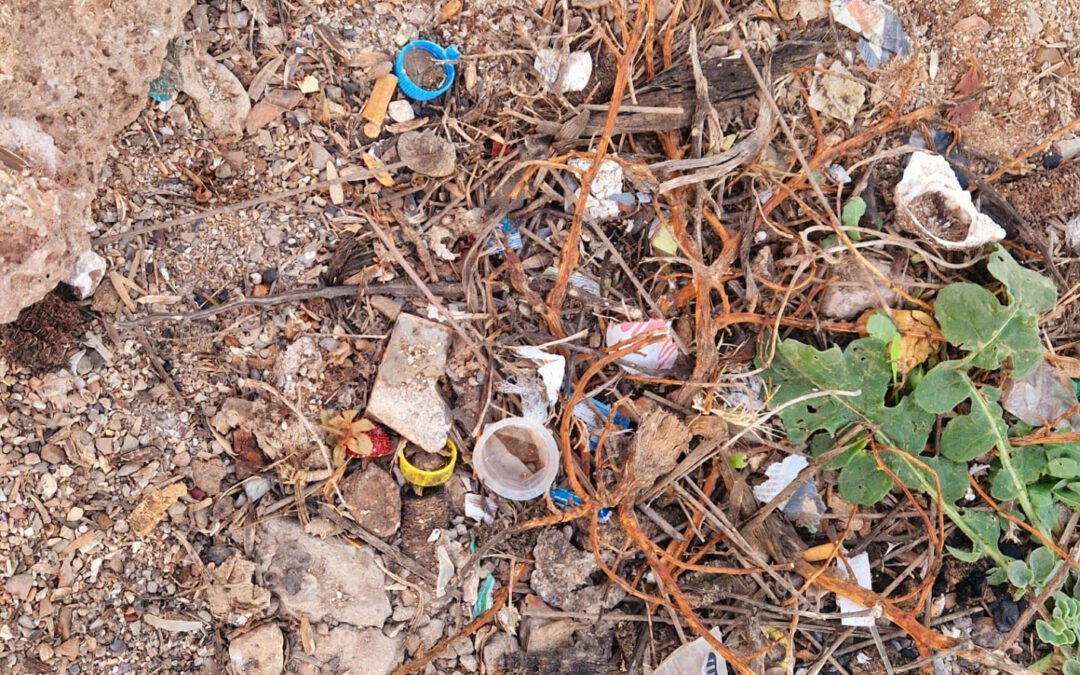As I traverse the vibrant landscapes of Morocco, from the bustling City of Tangier to the serene blue hues of Chefchaouen, it is hard to ignore the unsettling truth that lies beneath the surface of this beautiful country. The sheer amount of litter scattered across its towns and countryside is nothing short of an environmental tragedy. It is a tale of neglect that tarnishes the splendour of Morocco’s natural and urban landscapes.
From the moment you leave the environs of Tangier, you are greeted not by the fragrant spices of the souks or the warm smiles of locals, but rather by the unsightly sight of plastic bags swirling in the wind, clinging to the trees like unwanted ornaments. The villages and towns streets, once vibrant with life, are now littered with discarded water bottles and fast-food wrappers, remnants of a society struggling to cope with its own waste.
Moving on to the Blue City of Chefchaouen, one might expect the serene beauty of its azure walls to distract from the litter at hand. Yet, even amid the picturesque alleyways, it is disheartening to find plastic bottles and snack packets strewn about, marring the idyllic scene. It is a stark reminder that beauty can be overshadowed by irresponsibility.
Fes, known for its rich history and intricate architecture, suffers a similar fate. As I wandered through the narrow streets of the medina, I was struck not just by the historical significance of the buildings, but by the litter that clogs the alleyways and tarnishes the very essence of this UNESCO World Heritage site. The locals, proud of their heritage, seem resigned to the fact that their streets have become dumping grounds rather than the cultural treasures they should be.
Then there’s Casablanca, a city that embodies modernity yet grapples with outdated waste management practices. The beachfront areas, which should be a sanctuary for relaxation, are instead littered with remnants of human activity. The irony of a city that aspires to be a beacon of progress is not lost when one sees its coastline littered with plastic debris, a visual metaphor for its struggle to reconcile growth with sustainability.
Finally, at my encampment on Plage Les Palmers, the Atlantic Seaboard reveals yet another layer of this ongoing crisis. Despite the stunning sunsets and the rhythmic sounds of the waves, the beach is marred by an unrelenting tide of refuse. Visitors come to unwind and enjoy nature, yet they are met with the harsh reality of our disposable culture.
It is clear that the issue of litter in Morocco is not just an aesthetic concern; it is an environmental crisis that demands urgent attention. The current waste management strategies are insufficient, and awareness of the effects of littering seems to be alarmingly low.
One potential solution to this pervasive problem could be the introduction of a deposit scheme for plastic containers. By implementing a system where consumers pay a small deposit on plastic bottles and containers, which is refunded upon their return for recycling, they can incentivise proper waste disposal. This model has been successfully employed in various countries, leading to significant reductions in litter and increased recycling rates. It encourages a culture of responsibility and sustainability, fostering a collective mindset that values the environment.
As we travel through this magnificent country, let us not only marvel at its beauty but also commit to preserving it. The litter that blights Morocco’s landscapes is a challenge that can be tackled, and with thoughtful initiatives like a deposit scheme for plastic, can help ensure that this rich tapestry of culture and nature remains intact for generations to come.
In the words of our Welsh bards, it is time we raise our voices not just in celebration of Morocco’s beauty, but in lament for its littered fate—because every piece of litter tells a story of neglect, and every effort to clean up tells a story of hope.
Stan Robinson
Voice of Wales reporting from Morocco.














